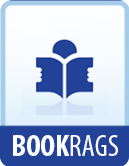It is most certainly refreshing to hear this learned Chinaman talking and giving his impressions and opinions about matters of such vital importance. Ng Poon Chew, at my request, gave me the business card of the newspaper. This states that the paper, which is published daily in Chinese, is called “Chung Sai Yat Po,” and that it has the largest circulation of any Chinese paper published outside of the Chinese Empire. The card further tells us that “this paper is the organ of the commercial element in America and is the best medium for Chinese trade.” In addition to the daily issue of the newspaper, “English and Chinese Job Printing” is done in the office. The work of interpreting the English and Chinese languages is carried on here. Mr. Ng Poon Chew spoke with evident pride about his paper, and informed me that he gave a daily account of the proceeding’s of the General Convention, then in session in Trinity Church, San Francisco, in the “Chung Sai Yat Po.”
The editing of a Chinese newspaper is no easy matter. The printing of the paper is difficult and requires great skill and patience. There are, for example, forty thousand word-signs, all different, in the Chinese language, and to represent these signs there must be separate, movable type-pieces. It is said that it takes a long period of time to distribute the type and lay out “the case.” The typesetter must know the word by sight to tell its meaning, otherwise he will make serious blunders. Then it is a hard matter to find intelligent typesetters. The editor, too, must be a man of business. The paper is watched by spies of the Chinese Government, and if the editor expresses himself in any manner antagonistic to the Emperor or the Dowager Empress or any of the viceroys of the provinces, his head would be cut off if he ever ventured to set foot in China. There is another obstacle in the way of a Chinese newspaper of liberal views, like the “Chung Sai Yat Po.” It cannot get its type from China, as the Government is opposed to every reform paper. The type for such a journal is cast in a Japanese foundry in Yokohama. It is said that about ten thousand word-signs are




